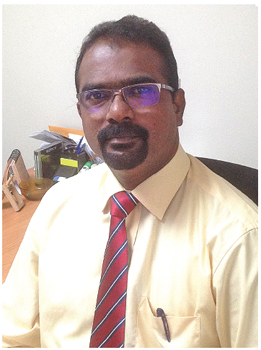
 This past March a horrific video went viral online of a group of students from the Mayaro Composite Secondary School savagely beating another student, leaving her unconscious in a drain. It was the latest in a trend of news stories, more than one exploding first on social media, showing students engaged in dysfunctional behaviours such as violence, vandalism and sexual activity. As the society grapples with the causes behind these incidents a team from The UWI is looking at a very specific risk factor – substance abuse. This past March a horrific video went viral online of a group of students from the Mayaro Composite Secondary School savagely beating another student, leaving her unconscious in a drain. It was the latest in a trend of news stories, more than one exploding first on social media, showing students engaged in dysfunctional behaviours such as violence, vandalism and sexual activity. As the society grapples with the causes behind these incidents a team from The UWI is looking at a very specific risk factor – substance abuse.
“The high use of alcohol and other drugs by students, exacerbated by the apparent easy access to the substances is a cause for serious concern,” states the overview document for a one-day workshop to help professionals recognise and treat the young people abusing alcohol, cigarettes, marijuana and hard drugs.
The statistics are stark. “In Trinidad and Tobago, the prevalence of current alcohol use among students overall is 42.5%. The prevalence of lifetime drug use was 13.6%,” says Dr. Emmanuel Janagan Johnson, Lecturer and Coordinator in the Social Work Unit of the Department of Behavioural Sciences.
The workshop, “Strategies for the prevention of drug abuse and trauma amongst adolescents in Trinidad and Tobago”, was hosted by the Social Work Unit on March 21 at the Faculty of Social Sciences Lounge. Participants were made up primarily of professional social workers from Government ministries, schools, medical institutions and other areas dealing with youth. They learned about the heavy toll of substance abuse on young lives.
“There are many negative outcomes,” Dr. Johnson says. He outlines signs and symptoms such as trauma, troubled relationships, thinking problems, emotional pain and risky behaviour. Aggressive and violent behaviour are also symptoms of substance abuse and could be playing a role in incidents that not only spill out of the school but can also lead to serious injury and death. On March 29 it was reported that a 14- and 15-year old student from the Barrackpore East Secondary School “savagely beat” a taxi driver who refused to pick them up. The week before, the body of a 16-year-old was found in a drain just outside the compound of the Waterloo Secondary School.
But what is causing students as young as nine (the average age is 13) to start abusing substances?
“There are several factors, starting with the family,” Dr. Johnson says. “A recent study conducted by the World Health Organisation (WHO) in Trinidad reports that students’ first exposure to drinking alcohol was by family members in childhood or experimentation later.”
Families may either be permissive in allowing children to abuse substances or indoctrinate them into a culture in which substances are frequently used. Alternatively, families in which the child has poor supervision contribute to substance abuse. In these instances other factors, such as peer group, easy access and the omnipresence of advertising and marketing that promotes substances, can have a greater impact.
“Substances are everywhere. These children have busy parents. I know parents who drop their children to school in the morning and do not see them until late in the evening. The children barely see the parent’s face all day,” says Dr. Johnson.
More social workers the solution
The workshop was about more than identifying the problem and its causes. Facilitators also focused on treatment strategies and resources. In fact, one of the main solutions offered to curb not only substance abuse in schools but also trauma and its consequences is to increase the number of social workers in the education system.
Dr. Johnson says: “we need more social workers because of the increase in these attitudes from students. The teachers cannot do the parenting. That is not their job. The principal cannot do it. Appointing social workers in schools is the future of education.”
He explained that a social worker is capable of handling up to 250 students: “I 100% guarantee that if there is a school with 1,000 students and you appoint four social workers the behaviour of the students will improve dramatically.”
The Social Work Unit is also approaching the issue of substance issue through research. Supported by The UWI’s Research and Publication Fund, the Unit intends to carry out a nationwide data collection exercise in schools, working with the Ministry of Education and the schools’ student support services. The study will select schools with a higher prevalence of substance abuse among students.
The substance abuse workshop was part of the project, although focused on the training aspect for social workers.
This is timely and relevant research as the violence in schools in March alone has brought the issue to the forefront of the public consciousness once more. Perhaps, through the research and engagement exercises of the Social Work Unit, we are moving closer to finding solutions that will not only curb the violent and dysfunctional activity but also heal the emotional wounds of the students involved.

|





